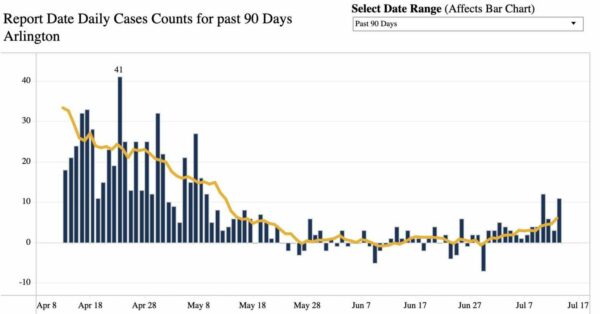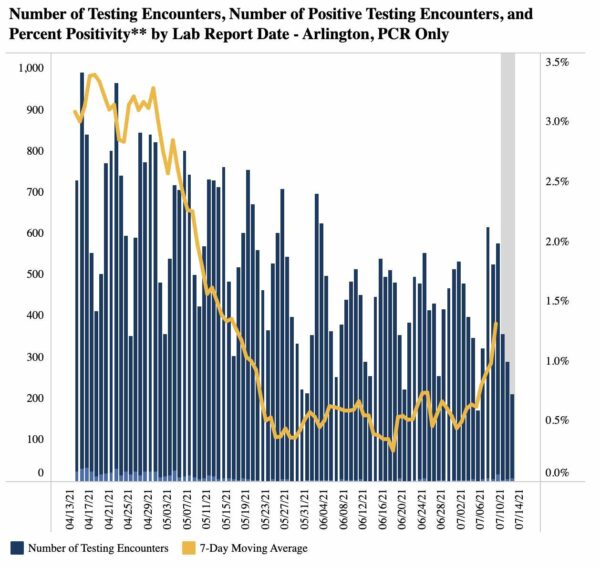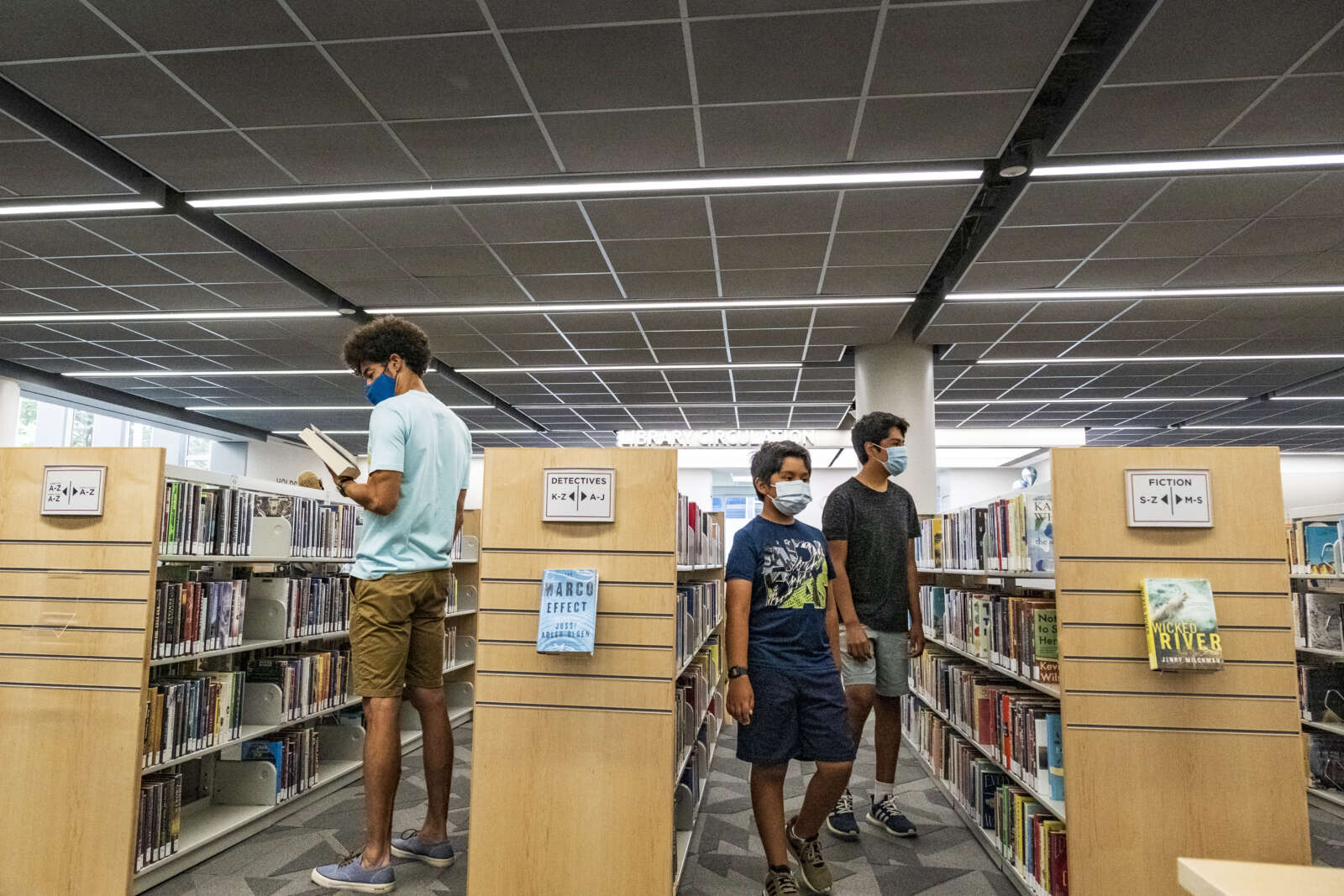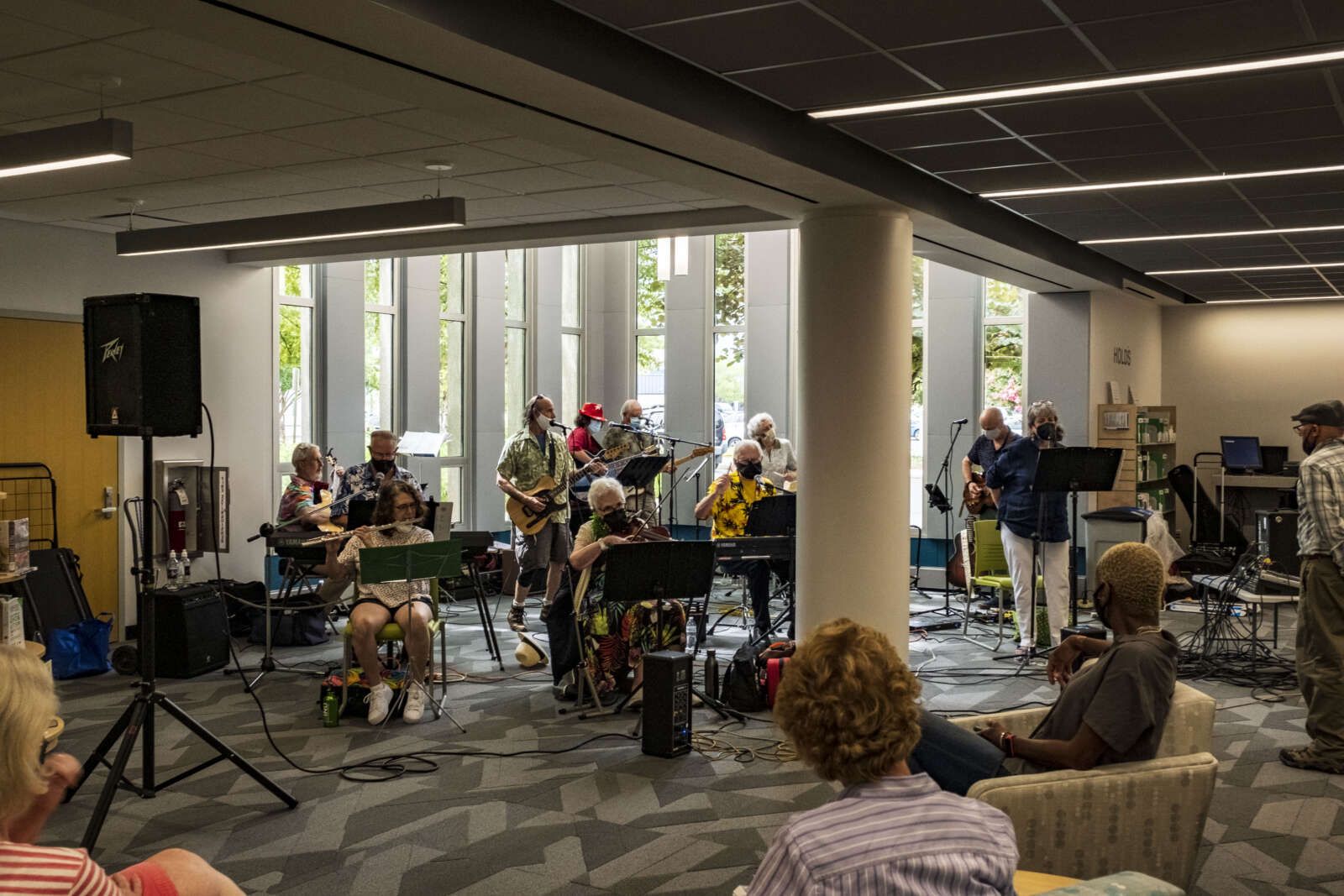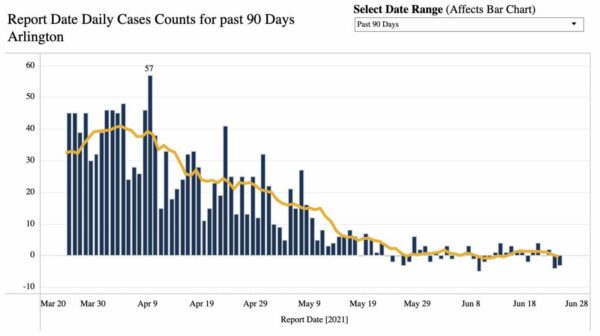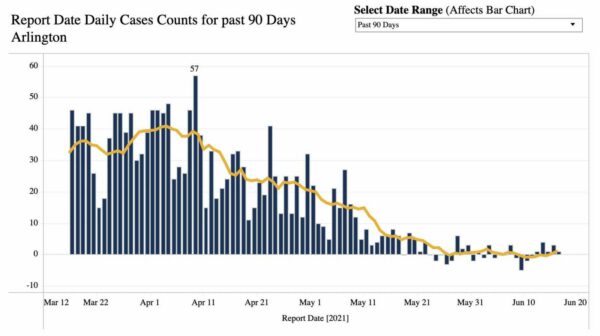
(Updated at 8:40 a.m.) Some federal agencies are looking to continue remote and hybrid working options for employees post-pandemic — a shift with potential impacts on Arlington’s office and residential real estate markets.
The Biden administration expects White House staff to return for full-time, in-person work in July, but on Thursday federal agencies were told that they will be able to offer increased work-from-home flexibility, even after the pandemic. Remote work may become a permanent option for some federal workers, just as is happening for many private-sector workers.
“I think the office market will cool as companies continue to assess what the remote work shift means for their workforce and space needs in the next few years,” said Eric Maribojoc, the executive director of the Center for Real Estate Entrepreneurship at George Mason University.
Arlington has a sizable federal presence despite the Base Realignment and Closure Act, which saw the relocation of military-occupied office space. The experience taught the county some lessons about diversifying its economic base, meaning Arlington today, preparing for more telework, is in a different boat than in 2005 facing BRAC.
Those familiar with the county’s market trends say there will be impacts but they will likely be tempered by a more diverse economy, a trend toward hybrid options that involve some time in offices, and a continued need for in-person work among certain agencies and large tech companies.
“Many companies are just beginning to plan for their potential return to the office and discussing a fully remote future is still largely speculative,” Arlington Economic Development spokeswoman Kirby Clark said. “We anticipate companies will continue to offer telework flexibility during this next stage of recovery. However, we hear from many of our major employers that there is no substitute for in-person collaboration in the office, especially for knowledge-based science and technology industries.”
Arlington’s federal workforce
Although it took a while, Arlington did experience a significant drop in federally-occupied office space.
From 2003 to April 2021, Arlington’s federal office space dropped from 11.4 million square feet to 6.3 million square feet, according to an AED report and the GSA.gov Lease Inventory.
Today Arlington has 29,200 federal employees — excluding military personnel — and is home to the offices of a number of agencies, including the State Department, U.S. Marshals Service, the Environmental Protection Agency and the Drug Enforcement Agency, Clark said.
Some former government tenants have been replaced with corporate, tech and research anchors and a lot more housing, however. Between 2016 and 2020, Arlington added 5,193 housing units, with 3,175 units under construction and 5,907 units planned for future construction, she said.
“Over the last ten years, the landscape of Arlington’s Urban Villages transformed, becoming more economically diverse and land-use balanced, with residential development replacing old, obsolete office spaces formerly occupied by federal tenants,” said Clark.
As a region, D.C. has the nation’s second-largest pool of potential remote workers, at 49%, behind the San Francisco Bay Area, at 50%, according to a February report from the Greater Washington Partnership. The northern half of Arlington has one of the highest concentrations of remote-capable workers, alongside portions of Northwest D.C. and the Bethesda and Potomac areas of Montgomery County.
The report, which came out before the news of the changing federal work-from-home guidelines was first reported, predicted that some of the largest gains in remote work post-pandemic will likely be among government jobs.
“Two in five federal government workers may spend some time at home, with smaller shares of state and local public-sector professionals working remotely,” the report said.
Among government employees, according to Clark and Maribojoc, these options will likely be expanded for those who perform individual tasks that require focus but not high levels of security clearance.
“Due to the presence of the Pentagon and other defense and security agencies in Arlington, many federal-supporting tenants have security requirements that may require physical office spaces or proximity to major government and defense anchors,” Clark noted.
If more federal government employees go fully remote — a conversation that Clark said is still largely speculative — she predicted that it would be “a challenge not limited to Arlington and has the potential for broader regional impacts in the future.”
(more…)



